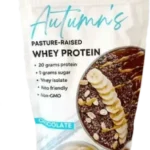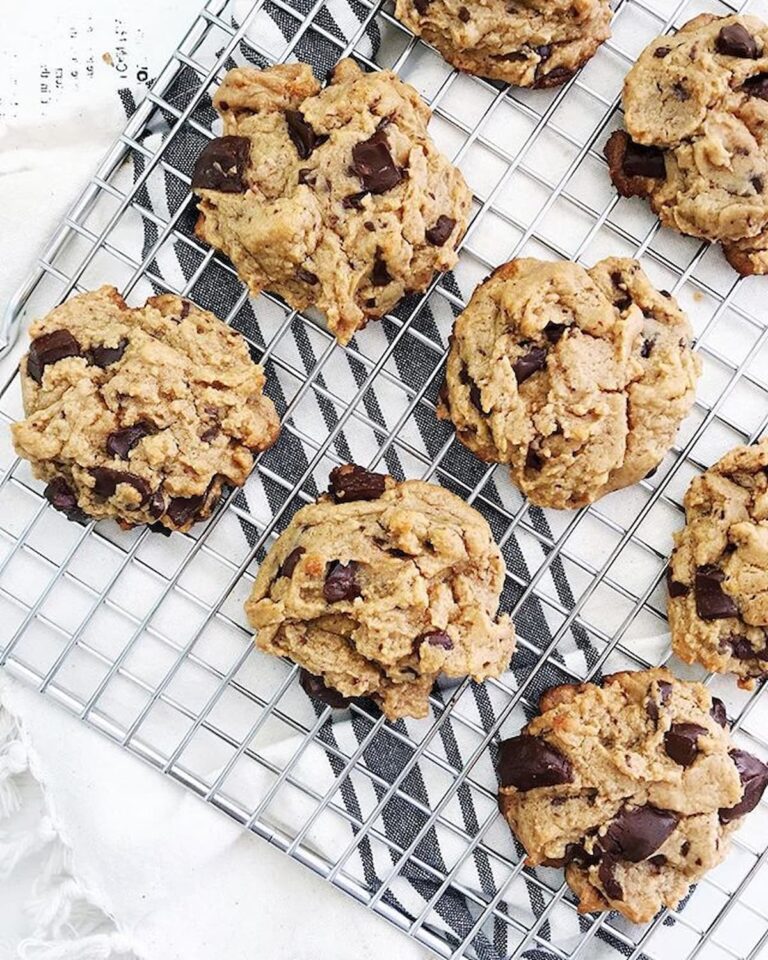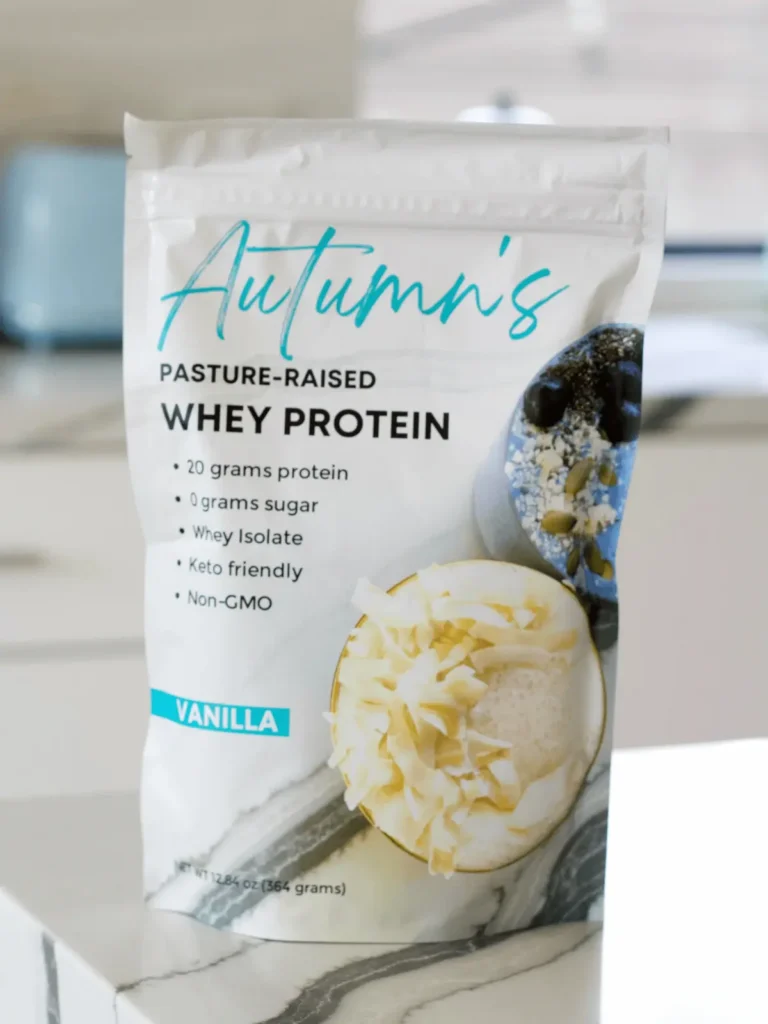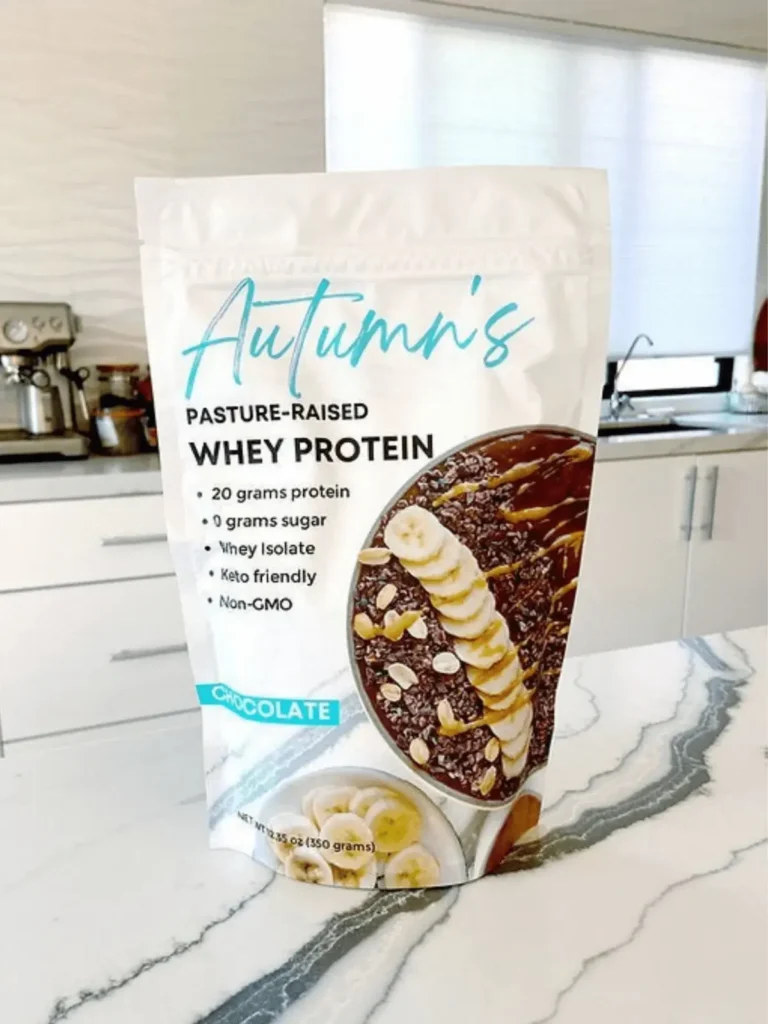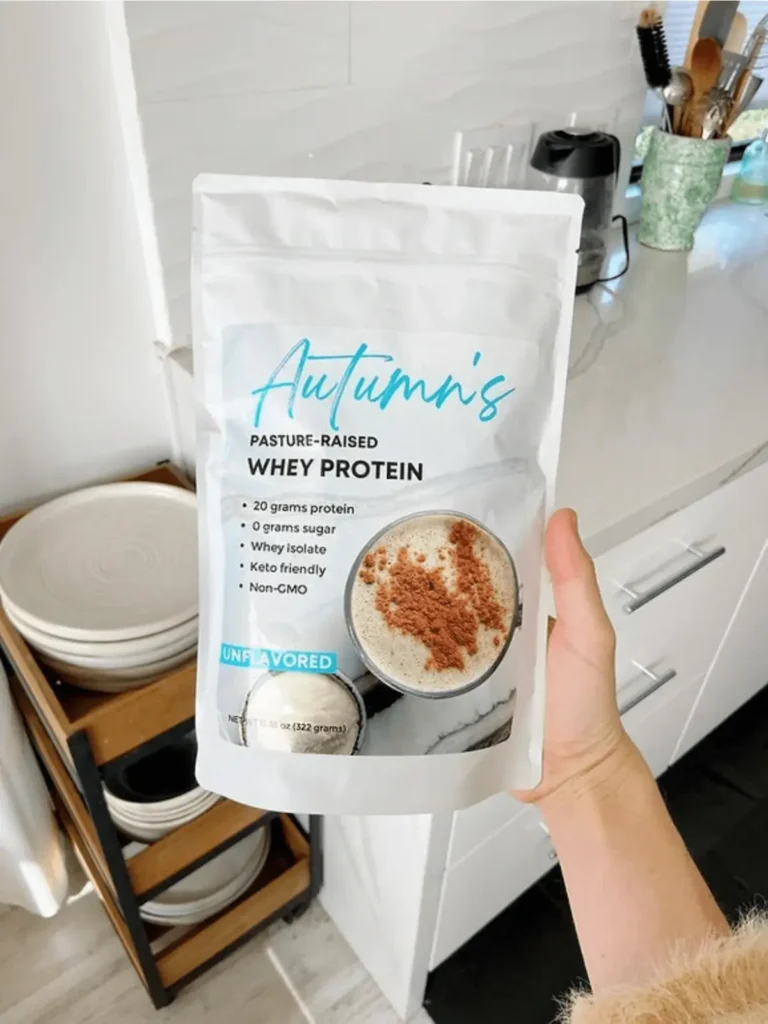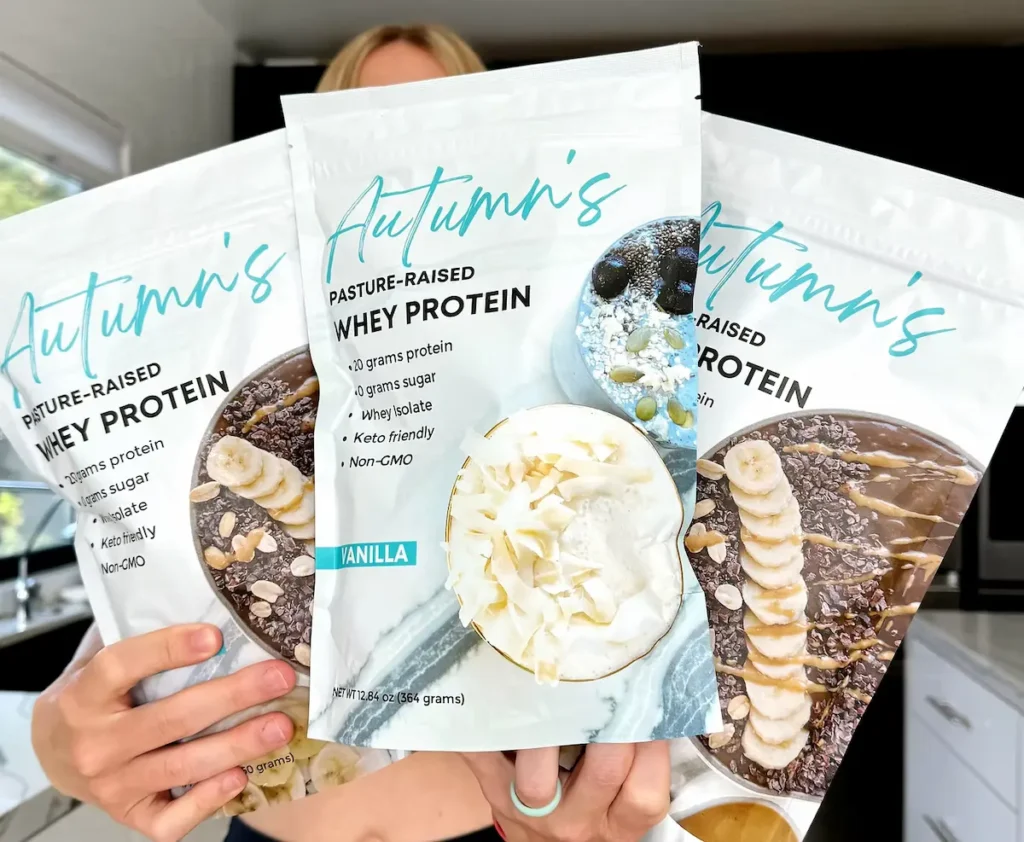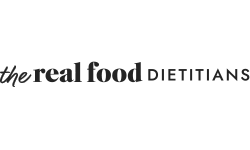Carbs can, and often do, turn into fat when we eat it. But it doesn’t always. Here’s when carbs turn into fat and when it doesn’t.
Do carbs turn into fat? This is a valid question, especially if weight loss is a goal of yours. With the fall of the “low-fat diet” and the increased awareness of how sugars and carbohydrates effect the body – you may be wondering if carbs actually directly turn into fat. And if so… how?!
Today, I’m breaking down the science-y deets of what happens when you eat carbohydrates and how this effects your weight loss goals!
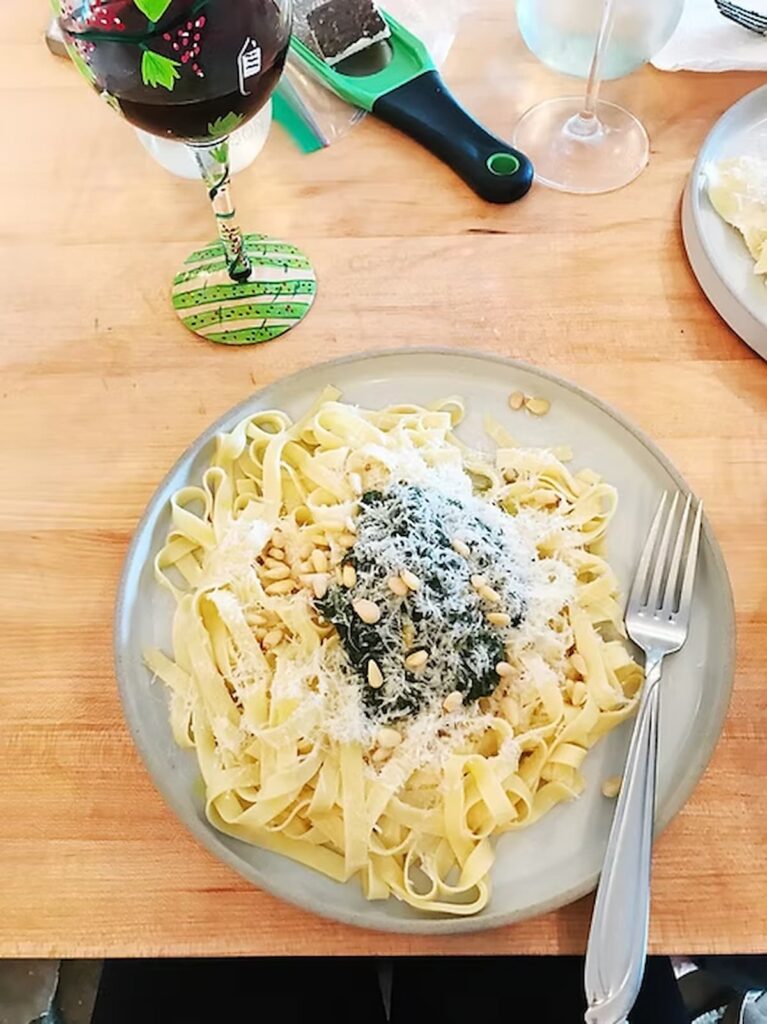
What are Carbohydrates?
Carbohydrates are one of the three macronutrients that your body can use as an energy source. The other two are protein and fat. Carbohydrates come in various forms such as simple (like with fruits and refined sugar) and complex (like with sweet potatoes and beans). Simple carbohydrates can more easily be described as “sugars”. Complex carbohydrates can also be referred to as “starches”.
When either of these are consumed, your body releases a hormone called insulin (remember this – it’s important!) into the blood supply in order to store the carbs you have eaten. The amount and speed of insulin released will depend on the amount and type of carbohydrates consumed.
Simple carbohydrates (or sugars) are absorbed much more quickly into the blood supply than complex carbohydrates (or starches). This typically leads to a faster spike in insulin with sugars. However, not all starches are created equal. Some starches are broken down faster and some foods contain higher amounts of starches than others. For example, 1 cup of cooked white rice contains 36g of starches while 1 cup of cooked sweet potato contains 12g. This means that more insulin will be released to store the higher amounts of starch in the white rice vs. the sweet potato.
Why Insulin Stores Fat And Makes You Hungry
The main job of insulin is to store carbohydrates into either your liver, muscle or your fat cells. There is only SO much carbohydrate that can be stored in your liver and muscle (meaning, not very much). This means that once these sources are full, insulin focuses purely on storing the carbohydrates into your adipose (aka fat) tissue.
In fact, another one of the studied effects of insulin is that it inhibits/stops fatty acid break down as a fuel source. This means that insulin lowers the amount of fuel your body can use from fat while insulin is present. What this ALSO means is that you become reliant on glucose/carbohydrates as a fuel source instead. And remember how I mentioned that you don’t store a ton of this? This causes you to quickly run out of your available fuel source (because fat is locked up and can’t be used when insulin is present), which leads to a dip in your blood glucose/sugar levels. This drop typically occurs within 1-2 hours after eating a high carbohydrate or low fat/protein meal and leaves you feeling hungry, irritable and a spike in your sugar or snack cravings.
This has nothing to do with availability of fuel (aka adipose or fat) or whether you TRULY need to eat. The hunger and cravings comes down to the fact that your fat burning capabilities were blocked by insulin and now you’re experiencing symptoms of low blood sugar.
Something to note: protein has a very mild effect on insulin release and fat has essentially zero effect. Carbohydrates have a significantly higher effect on insulin and therefore causes the biggest release of insulin out of the three macronutrients.
Quick Recap: Carbohydrates cause the biggest spike in insulin (your storing hormone). When insulin is present, fat burning is shut off and storing mode is turned on. As a result, you become hungry faster with meals that stimulate high amounts of insulin to be released.
Does This Mean Carbs Are Evil?
It depends on what type of carbs we’re talking about. Depending on your tolerance to carbohydrates and insulin, you may be able to eat whole sources of more starchy carbohydrates such as sweet potatoes, beans, lentils and squash. You’ll even see these items in the Complete Intermittent Fasting Bundle strategically used at certain times of the day for best results.
However, some people’s body tends to release higher amounts of insulin in response to carbohydrates, which can lead to difficulties losing weight. You will see starchy carbs addressed and how to handle them in these situations in the Advanced Weight Loss Strategies protocol in the Complete Intermittent Fasting Bundle.
When it comes to refined grains, flours and sugars, these have zero added value to the body. Because these items are stripped of any possible benefit they may have provided, the only effect it has on the body is a massive increase in blood glucose and insulin. Therefore, when it comes to these types of carbohydrates, no matter what your wellness goal, these should be greatly limited to special occasions or once a week treats.
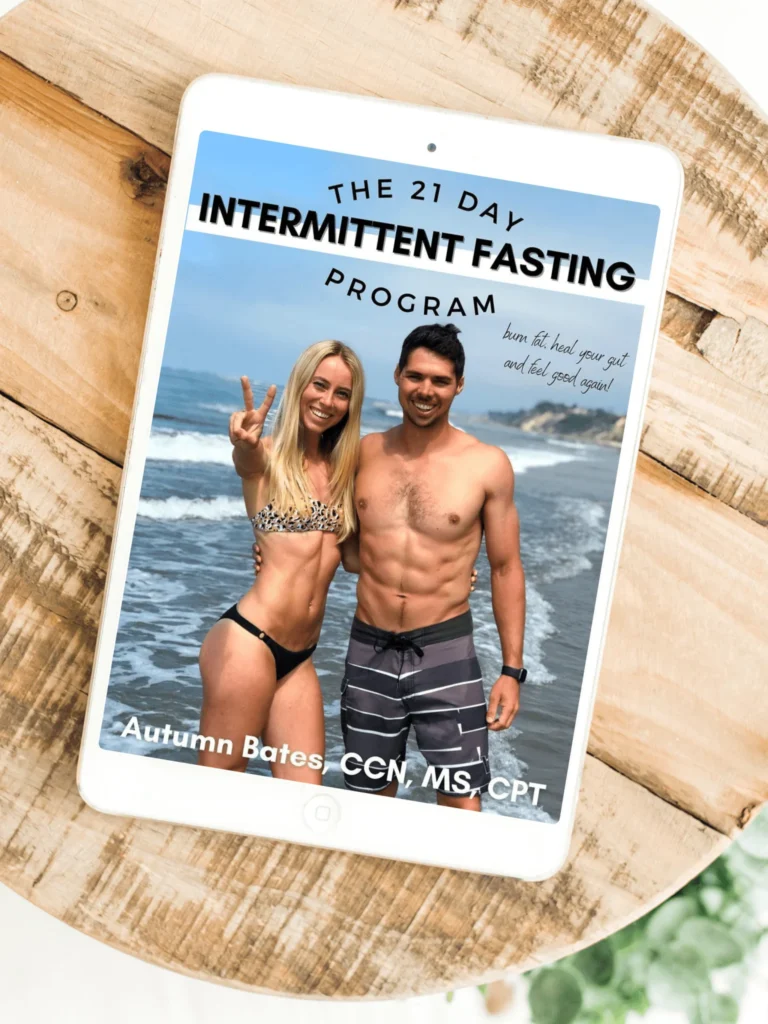
Tap into fat burning
The 21 Day Intermittent Fasting Program
The 21 Day Intermittent Fasting Program provides step-by-step strategies to help you use Intermittent Fasting with delicious, protein-packed meals to support fat loss, reduce hunger, and boost gut health.
